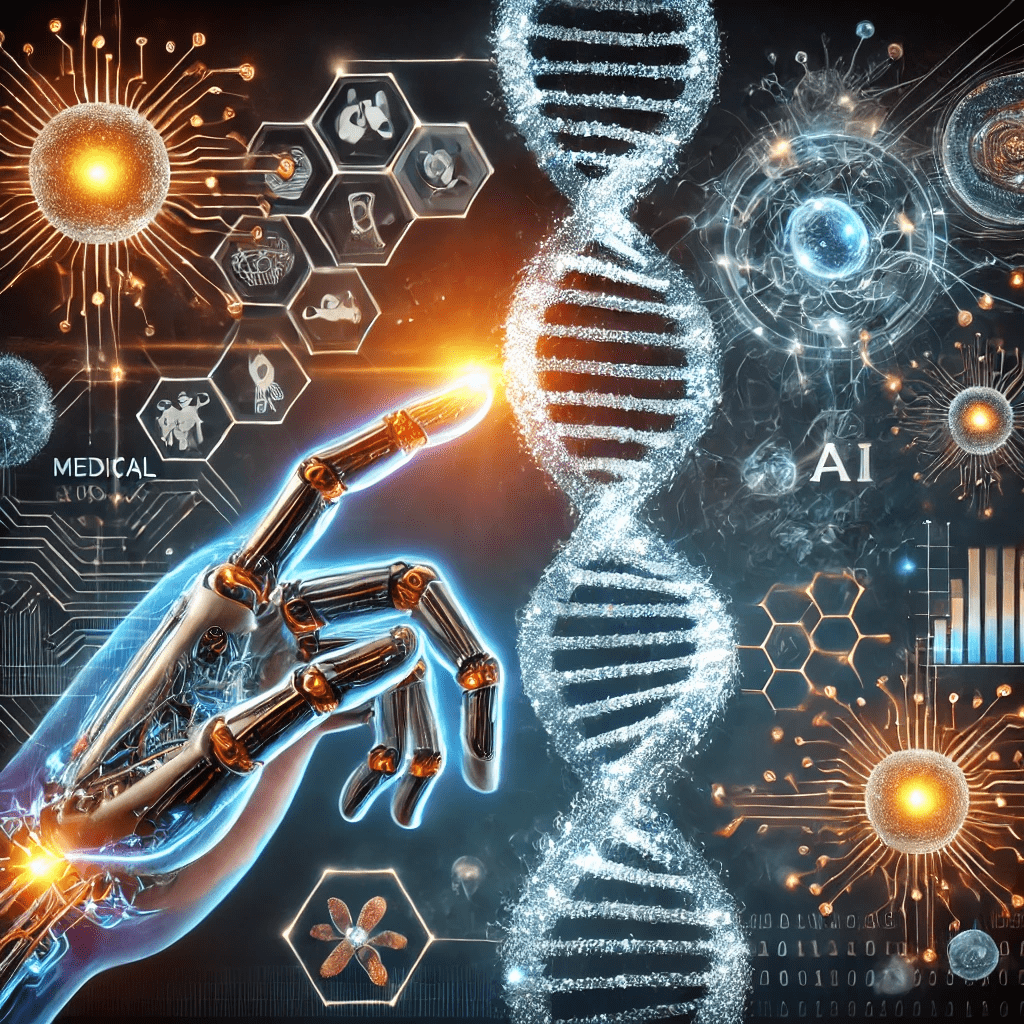
The Future of Artificial Intelligence in Biotechnology (In Easy-to-Understand Terms)
When people think of Artificial Intelligence (AI), they often imagine robots taking over the planet. Sure, it sounds straight out of a sci-fi movie, but AI can also help us make big leaps forward in areas like precision medicine, curing rare illnesses, and much more. What Exactly Is AI? AI basically refers to machines that can handle tasks usually done by humans—things like recognizing patterns or even making decisions. As these machines get more practice (by solving tasks again and again), they learn from their mistakes and get better at whatever they’re doing. When you combine that learning ability with giant piles of data, there’s a ton of potential for discovering new cures and solving tough scientific puzzles. AI Meets Biotech Dr. Ivica Labuda, who directs a Biotechnology Program, put together a webinar titled: “The AI and Machine Learning in Biotechnology – Industry Panel Discussion.” The event had experts like Anna Paola Carrieri, Tomas Drgon, Gigi Minsky, and Henry Minski talking about how AI is helping tackle supposedly “impossible” challenges—and how it’s changing the biotech world for the better. Here are a few areas where AI is set to make a big impact. 1. Cracking the Mystery of 3D Protein Structures Proteins are crucial to life: they help build tissues, serve as messengers in the body, and fight off diseases. Researchers have already figured out the shapes of many proteins through methods like X-ray crystallography, but there are still loads of proteins whose structures remain a mystery. A British research team recently developed AlphaFold, an AI platform that uses existing protein data to predict 3D protein structures. Not only does it work well, it’s way faster than old-school approaches. By speeding up the protein-structure discovery process, scientists can identify potential drug targets more efficiently—meaning we could see improved treatments for diseases like muscular dystrophy and cystic fibrosis in the not-so-distant future. 2. Diagnosing and Treating Mental Health Illnesses Finding ways to detect and treat illnesses like depression or addiction early on is a huge challenge. That’s where AI comes in to help. For instance, at Stanford University, Dr. Leanne Williams has developed an AI program that analyzes brainwaves in depressed patients. The AI looks for patterns that suggest which antidepressant treatments might work best for each patient. AI is also used to track how people with addiction are doing, spotting signals that indicate they may be at risk of relapse—so doctors can jump in with the right kind of support. Since everyone’s biology and experiences are different, it can be tough to prescribe the “perfect” treatment for each mental health issue. AI can learn from each case and improve over time, making personalized medicine more accurate. If doctors can see trouble coming, they can act sooner, and that might save lives. Looking Ahead AI isn’t just a cool, futuristic gadget—its potential in biotech is enormous. History shows that new ideas (like mRNA technology in vaccines) often face resistance at first, but they can ultimately become game-changers. Artificial Intelligence is at the forefront of biotechnology research, with the power to uncover new drug targets and usher in an era of truly personalized medicine. By embracing AI, we open the door to faster drug development, more tailored treatments, and better health outcomes for everyone. Instead of fearing robots taking over, we might just want to focus on how AI can help create breakthrough solutions, one disease at a time.